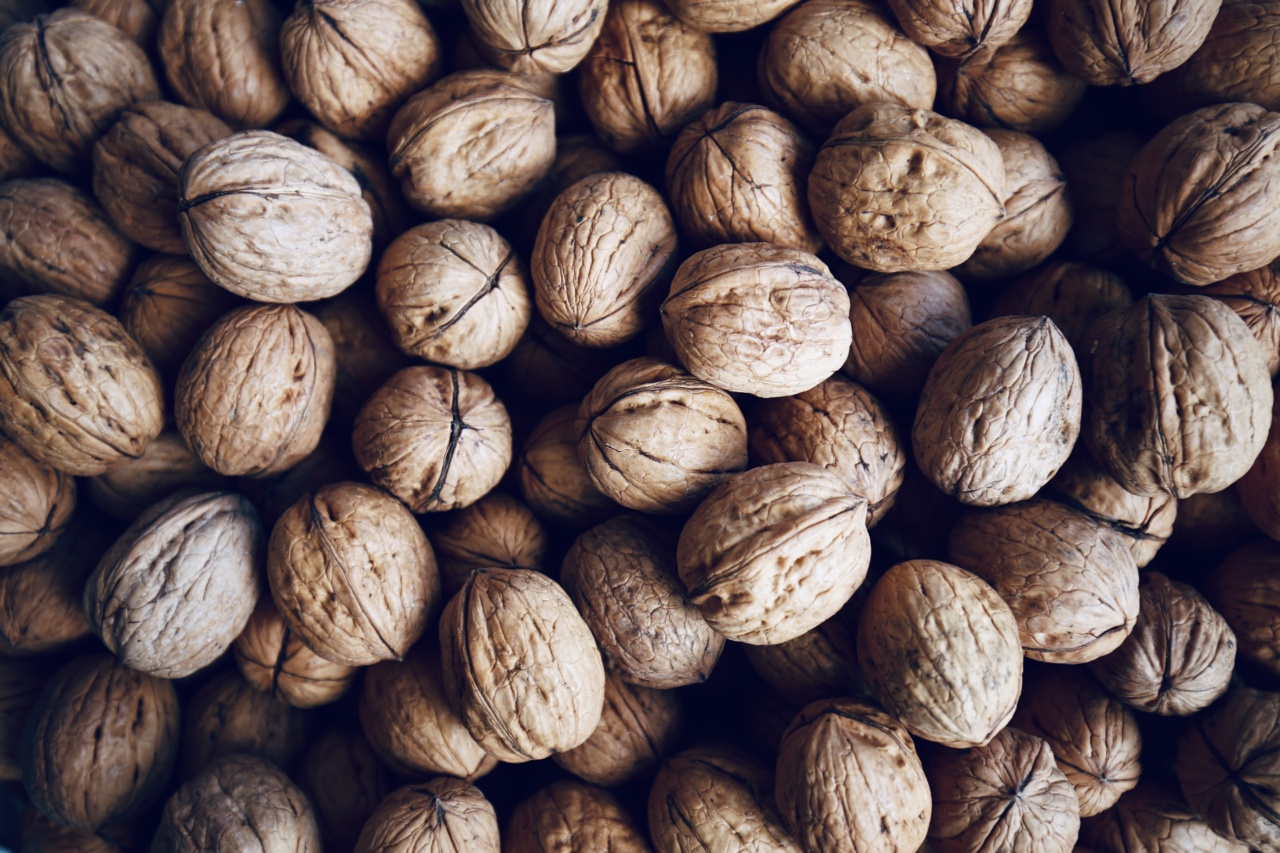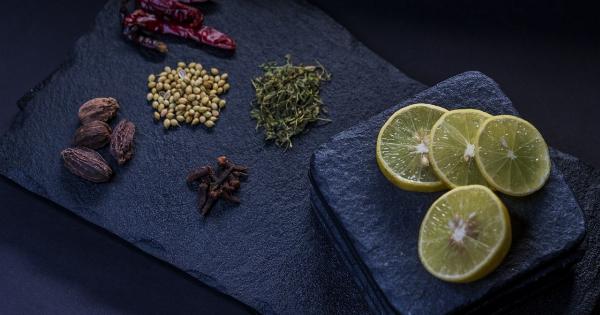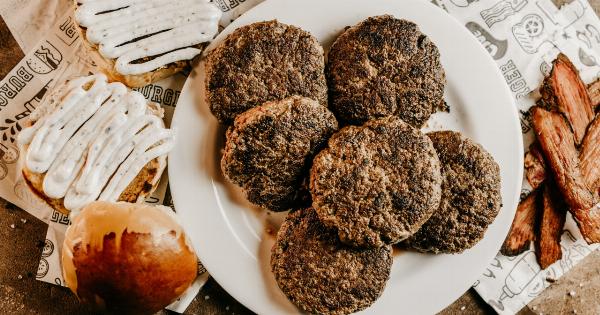When it comes to heart health, keeping your cholesterol levels in check is essential. High levels of bad cholesterol, or LDL, can lead to plaque buildup in your arteries and increase the risk of heart disease.
One simple way to lower LDL cholesterol is by incorporating nuts into your diet. Not only are nuts packed with heart-healthy nutrients, they also contain monounsaturated and polyunsaturated fats that can lower LDL cholesterol.
In this article, we’ll introduce you to 30 heart-healthy nuts that can help you keep your cholesterol levels in check!.
1. Almonds
Almonds are a great source of monounsaturated and polyunsaturated fats, fiber, and plant-based protein. Studies have shown that consuming almonds can lower LDL cholesterol by up to 8%.
Almonds are also rich in vitamin E, which can help protect your heart health. You can enjoy almonds as a snack or add them to salads, smoothies, or oatmeal.
2. Pistachios
Pistachios are another heart-healthy nut that can help lower LDL cholesterol. They are a good source of fiber, protein, and healthy fats. Studies have found that eating pistachios can reduce LDL cholesterol by up to 12%.
Pistachios are also packed with antioxidants, which can help protect against heart disease and other chronic illnesses.
3. Walnuts
Walnuts are one of the best sources of alpha-linolenic acid (ALA), a type of omega-3 fatty acid that can improve heart health. Studies have shown that eating walnuts can reduce LDL cholesterol by up to 16%.
Walnuts are also rich in antioxidants and other heart-healthy nutrients, such as magnesium and potassium. You can eat walnuts as a snack or add them to salads, oatmeal, or baked goods.
4. Brazil Nuts
Brazil nuts are a great source of healthy fats, protein, and fiber. They also contain selenium, a mineral that can help improve heart health and lower LDL cholesterol. Studies have found that consuming Brazil nuts can reduce LDL cholesterol by up to 14%.
You can eat Brazil nuts as a snack or add them to granola, trail mix, or baked goods.
5. Hazelnuts
Hazelnuts are rich in monounsaturated and polyunsaturated fats, fiber, and protein. Studies have shown that eating hazelnuts can reduce LDL cholesterol by up to 12%.
Hazelnuts are also a good source of vitamin E, which can help protect against heart disease. You can eat hazelnuts as a snack or add them to salads, baked goods, or chocolate spreads.
6. Macadamia Nuts
Macadamia nuts are one of the richest sources of monounsaturated fats, which can lower LDL cholesterol and reduce the risk of heart disease. Studies have found that eating macadamia nuts can reduce LDL cholesterol by up to 9%.
Macadamia nuts are also rich in fiber, protein, and other heart-healthy nutrients. You can enjoy macadamia nuts as a snack or add them to baked goods, granola, or salads.
7. Cashews
Cashews are a good source of monounsaturated and polyunsaturated fats, fiber, and protein. Studies have shown that consuming cashews can lower LDL cholesterol by up to 8%. Cashews are also rich in magnesium, which can help improve heart health.
You can eat cashews as a snack or add them to stir-fries, salads, or baked goods.
8. Pecans
Pecans are a good source of monounsaturated and polyunsaturated fats, fiber, and protein. Studies have found that eating pecans can reduce LDL cholesterol by up to 10%.
Pecans are also rich in antioxidants, which can help protect against heart disease and other chronic illnesses. You can enjoy pecans as a snack or add them to salads, oatmeal, or baked goods.
9. Pine Nuts
Pine nuts are a good source of monounsaturated and polyunsaturated fats, fiber, and protein. Studies have shown that consuming pine nuts can lower LDL cholesterol by up to 5%.
Pine nuts are also rich in vitamins E and K, which can help improve heart health. You can eat pine nuts as a snack or add them to pesto, salads, or baked goods.
10. Peanuts
Despite their name, peanuts are actually a legume and not a nut. However, they are a great source of healthy fats, fiber, and protein. Studies have found that consuming peanuts can reduce LDL cholesterol by up to 14%.
Peanuts are also rich in vitamin E, which can help protect against heart disease. You can eat peanuts as a snack or add them to stir-fries, salads, or baked goods.
11. Chestnuts
Chestnuts are a low-fat nut that is rich in fiber, vitamin C, and other heart-healthy nutrients. Studies have shown that consuming chestnuts can lower LDL cholesterol by up to 9%.
Chestnuts are also a good source of potassium, which can help improve heart health. You can eat chestnuts as a snack or add them to stuffing, soups, or roasted vegetable dishes.
12. Filberts
Filberts, also known as hazelnuts, are a great source of monounsaturated and polyunsaturated fats, fiber, and protein. Studies have found that eating filberts can reduce LDL cholesterol by up to 12%.
Filberts are also rich in vitamin E, which can help protect against heart disease. You can eat filberts as a snack or add them to baked goods, granola, or salads.
13. Marcona Almonds
Marcona almonds are a type of almond that is grown in Spain. They are rich in monounsaturated and polyunsaturated fats, fiber, and protein. Studies have shown that consuming Marcona almonds can reduce LDL cholesterol by up to 10%.
Marcona almonds are also a good source of vitamin E, which can help protect against heart disease. You can eat Marcona almonds as a snack or add them to salads, cheese boards, or baked goods.
14. Peccan Nuts
Peccan nuts are a great source of monounsaturated and polyunsaturated fats, fiber, and protein. Studies have found that eating peccan nuts can reduce LDL cholesterol by up to 6%.
Peccan nuts are also rich in antioxidants, which can help protect against heart disease and other chronic illnesses. You can enjoy peccan nuts as a snack or add them to granola, baked goods, or oatmeal.
15. Pine Nuts
Pine nuts are a good source of monounsaturated and polyunsaturated fats, fiber, and protein. Studies have shown that consuming pine nuts can lower LDL cholesterol by up to 5%.
Pine nuts are also rich in vitamins E and K, which can help improve heart health. You can eat pine nuts as a snack or add them to pesto, salads, or baked goods.
16. Pumpkin Seeds
Pumpkin seeds are a great source of healthy fats, fiber, and protein. Studies have found that eating pumpkin seeds can reduce LDL cholesterol by up to 13%. Pumpkin seeds are also rich in magnesium, which can help improve heart health.
You can eat pumpkin seeds as a snack or add them to salads, smoothies, or baked goods.
17. Sunflower Seeds
Sunflower seeds are a good source of healthy fats, fiber, and protein. Studies have shown that consuming sunflower seeds can reduce LDL cholesterol by up to 8%. Sunflower seeds are also rich in vitamin E, which can help protect against heart disease.
You can eat sunflower seeds as a snack or add them to salads, granola, or baked goods.
18. Sesame Seeds
Sesame seeds are a great source of healthy fats, fiber, and protein. Studies have found that eating sesame seeds can reduce LDL cholesterol by up to 10%. Sesame seeds are also rich in calcium, which can help improve heart health.
You can eat sesame seeds as a snack or add them to salads, stir-fries, or baked goods.
19. Flaxseeds
Flaxseeds are a great source of alpha-linolenic acid (ALA), a type of omega-3 fatty acid that can improve heart health. Studies have shown that consuming flaxseeds can reduce LDL cholesterol by up to 18%.
Flaxseeds are also rich in fiber, protein, and other heart-healthy nutrients. You can add flaxseeds to smoothies, oatmeal, or baked goods.
20. Chia Seeds
Chia seeds are a good source of fiber, healthy fats, and protein. Studies have shown that consuming chia seeds can reduce LDL cholesterol by up to 10%. Chia seeds are also a good source of omega-3 fatty acids, which can improve heart health.
You can add chia seeds to smoothies, yogurt, or baked goods.
21. Chestnuts
Chestnuts are a low-fat nut that is rich in fiber, vitamin C, and other heart-healthy nutrients. Studies have shown that consuming chestnuts can lower LDL cholesterol by up to 9%.
Chestnuts are also a good source of potassium, which can help improve heart health. You can eat chestnuts as a snack or add them to stuffing, soups, or roasted vegetable dishes.
22. Black Walnuts
Black walnuts are a type of walnut that is native to North America. They are a good source of healthy fats, fiber, and protein. Studies have shown that consuming black walnuts can reduce LDL cholesterol by up to 4%.
Black walnuts are also rich in antioxidants, which can help protect against heart disease and other chronic illnesses. You can enjoy black walnuts as a snack or add them to salads, oatmeal, or baked goods.
23. Beech Nuts
Beech nuts are a type of nut that is commonly found in Europe and North America. They are rich in monounsaturated and polyunsaturated fats, fiber, and plant-based protein. Studies have found that eating beech nuts can reduce LDL cholesterol by up to 5%.
Beech nuts are also rich in vitamins E and K, which can help improve heart health. You can enjoy beech nuts as a snack or add them to salads, baked goods, or oatmeal.
24. Hickory Nuts
Hickory nuts are a good source of healthy fats, fiber, and protein. Studies have shown that consuming hickory nuts can reduce LDL cholesterol by up to 3%. Hickory nuts are also a good source of vitamin B6, which can help improve heart health.
You can enjoy hickory nuts as a snack or add them to salads, oatmeal, or baked goods.
25. White Oak Acorns
White oak acorns are a type of nut that is commonly found in North America. They are rich in monounsaturated and polyunsaturated fats, fiber, and protein. Studies have found that eating white oak acorns can reduce LDL cholesterol by up to 5%.
White oak acorns are also a good source of calcium, which can help improve heart health. You can roast white oak acorns and eat them as a snack or add them to granola, trail mix, or baked goods.
26. Butternuts
Butternuts are a type of walnut that is grown in North America. They are a good source of monounsaturated and polyunsaturated fats, fiber, and protein. Studies have found that consuming butternuts can reduce LDL cholesterol by up to 5%.
Butternuts are also rich in vitamin E, which can help protect against heart disease. You can enjoy butternuts as a snack or add them to salads, oatmeal, or baked goods.
27. Sweet Chestnuts
Sweet chestnuts are a type of chestnut that is commonly found in Europe and Asia. They are rich in fiber, vitamin C, and other heart-healthy nutrients. Studies have shown that consuming sweet chestnuts can lower LDL cholesterol by up to 15%.
Sweet chestnuts are also a good source of potassium, which can help improve heart health. You can enjoy sweet chestnuts as a snack or add them to soups, stews, or roasted vegetable dishes.
28. Ginkgo Nuts
Ginkgo nuts are a type of nut that is native to China. They are a good source of monounsaturated and polyunsaturated fats, fiber, and protein. Studies have found that eating ginkgo nuts can reduce LDL cholesterol by up to 7%.
Ginkgo nuts are also rich in antioxidants, which can help protect against heart disease and other chronic illnesses. You can enjoy ginkgo nuts as a snack or add them to salads, stir-fries, or baked goods.
29. Macadamia Nuts
Macadamia nuts are one of the richest sources of monounsaturated fats, which can lower LDL cholesterol and reduce the risk of heart disease. Studies have found that eating macadamia nuts can reduce LDL cholesterol by up to 9%.
Macadamia nuts are also rich in fiber, protein, and other heart-healthy nutrients. You can enjoy macadamia nuts as a snack or add them to baked goods, granola, or salads.
30. Chestnuts
Chestnuts are a low-fat nut that is rich in fiber, vitamin C, and other heart-healthy nutrients. Studies have shown that consuming chestnuts can lower LDL cholesterol by up to 9%.
Chestnuts are also a good source of potassium, which can help improve heart health. You can eat chestnuts as a snack or add them to stuffing, soups, or roasted vegetable dishes.
Conclusion
Adding these 30 heart-healthy nuts to your diet can help you lower your LDL cholesterol and reduce the risk of heart disease.
Whether you enjoy them as a snack or add them to your favorite recipes, these nuts are packed with fiber, protein, and other heart-healthy nutrients that can improve your overall health. So go ahead, indulge in these delicious and nutritious nuts!.





























